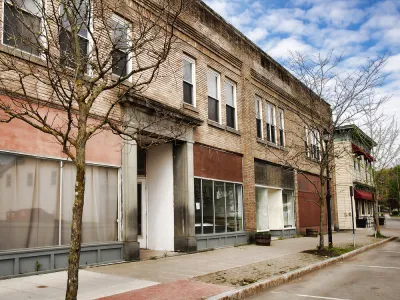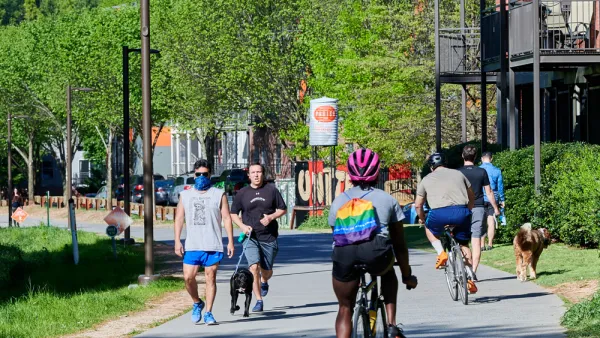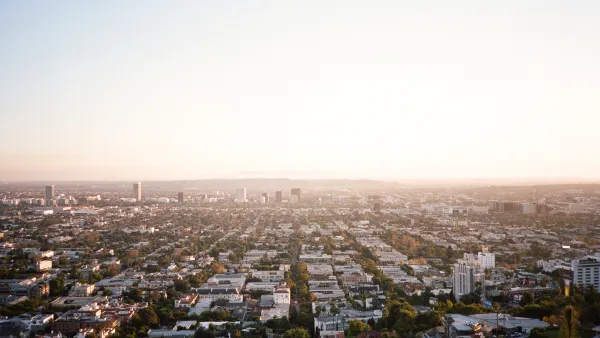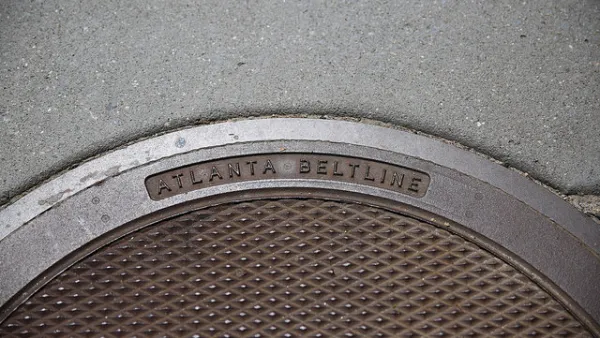One Atlanta neighborhood is experimenting with an ownership model that lets residents buy shares in a community-owned property.

The topics of gentrification and displacement frequently come up when discussing residential neighborhoods, but, as Adina Solomon reports, rising costs and neighborhood change also negatively impact small businesses. One organization in Atlanta is working to address commercial gentrification through a community ownership model.
In Southwest Atlanta's Capitol View, a historically Black neighborhood, residents are concerned that absentee landlords who buy up properties in the neighborhood don't take into account local needs when they renovate buildings and rent space. Consequently, residents don't get the services and retail that they need. The Guild, an "organization focused on building community wealth and closing the racial wealth gap in Atlanta," is testing a community-owned real estate model that aims to put control and profits into local hands and support Black entrepreneurs and legacy businesses. "The organization realized that if it wanted to close the racial wealth gap, it needed to own real estate for the first time." In November 2020, it purchased its first property, a white brick building on Dill Avenue, which it plans to redevelop. "The ground floor will have retail, including a grocery store that the neighborhood requested, and the top two stories will have housing, perhaps 15-17 units. "
"The Guild’s model is a community real estate trust that allows for anyone in the building’s 30310 ZIP code to contribute $10-100 a month. That investment goes into shares of the trust. Resident investors get a return through an annual dividend and the share price, which is tied to property values in this gentrifying neighborhood. The idea is to shift returns from developers to the community." The model operates on the belief that while neighborhood change may be inescapable, when ownership shifts from developers and their investors to the community, projects will benefit local entrepreneurs and long-term residents. "Capitol View, for example, has already gentrified to a certain degree," says Nikishka Iyengar, founder and CEO of The Guild, in the article. "We have to be super mindful about making sure we’re centering legacy residents that are still left."
FULL STORY: An Atlanta Neighborhood Will Finally Own Property as a Community

National Parks Layoffs Will Cause Communities to Lose Billions
Thousands of essential park workers were laid off this week, just before the busy spring break season.

Retro-silient?: America’s First “Eco-burb,” The Woodlands Turns 50
A master-planned community north of Houston offers lessons on green infrastructure and resilient design, but falls short of its founder’s lofty affordability and walkability goals.

Delivering for America Plan Will Downgrade Mail Service in at Least 49.5 Percent of Zip Codes
Republican and Democrat lawmakers criticize the plan for its disproportionate negative impact on rural communities.

Test News Post 1
This is a summary

Test News Headline 46
Test for the image on the front page.

Balancing Bombs and Butterflies: How the National Guard Protects a Rare Species
The National Guard at Fort Indiantown Gap uses GIS technology and land management strategies to balance military training with conservation efforts, ensuring the survival of the rare eastern regal fritillary butterfly.
Urban Design for Planners 1: Software Tools
This six-course series explores essential urban design concepts using open source software and equips planners with the tools they need to participate fully in the urban design process.
Planning for Universal Design
Learn the tools for implementing Universal Design in planning regulations.
EMC Planning Group, Inc.
Planetizen
Planetizen
Mpact (formerly Rail~Volution)
Great Falls Development Authority, Inc.
HUDs Office of Policy Development and Research
NYU Wagner Graduate School of Public Service





























